Abstract:
Low-resolution text images are very commonplace in real life and their information is hard to be extracted by using existing text recognition methods only. Although this ...Show MoreMetadata
Abstract:
Low-resolution text images are very commonplace in real life and their information is hard to be extracted by using existing text recognition methods only. Although this problem can be solved by introducing super-resolution (SR) techniques, most existing SR methods fail to process stroke regions and background regions of input text images distinctively. In this paper, we propose a text-specific super-resolution network named Text Enhanced Attention Network (TEAN) to solve this problem. First of all, we compensate for disadvantages of traditional thresholding mask operation proposed in Text Super-Resolution Network (TSRN) by utilizing deep-learning based semantic segmentation method to get correct masks as prior semantic information and propose a Text-Segmented-Contextual-Attention (TSCA) branch on the basis of them. Besides, we design an Orthogonal Contextual Attention Module (OCAM) working with TSCA to implicitly enhance stroke regions of LR images. Secondly, to effectively fuse shallow features and deep features of SR model, we propose a convolutional structure named Weight Balanced Fusion Module (WBFM) to improve traditional feature fusion methods of SR network. Finally, extensive experiments on TextZoom dataset demonstrate that the proposed network can improve the recognition accuracy of text images on existing text recognition models. Using TEAN to process low-resolution text images improves the recognition accuracy by 25.4% on CRNN, by 17.4% on ASTER, by 17.3% on MORAN, by 20.7% on NRTR, by 17.3% on SAR and by 15.9% on MASTER compared with directly recognizing them, which attains competitive performances against state-of-the-art methods. Furthermore, cross-dataset experiments on IC15_2077 demonstrate that TEAN is helpful for scene text recognition task, especially for low-resolution images even with the cross-domain issue.
Published in: IEEE Transactions on Circuits and Systems for Video Technology ( Volume: 33, Issue: 11, November 2023)
Funding Agency:
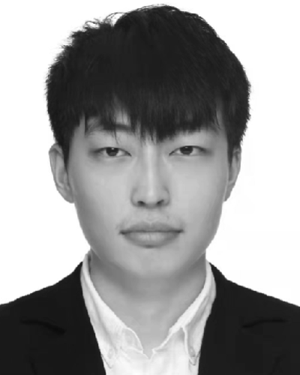
Department of Computer Science and Technology, Tongji University, Shanghai, China
Rui Shu is currently pursuing the master’s degree with the College of Electronics and Information Engineering, Tongji University, Shanghai, China. His research interests include computer vision, deep learning, scene text recognition, and scene text super-resolution.
Rui Shu is currently pursuing the master’s degree with the College of Electronics and Information Engineering, Tongji University, Shanghai, China. His research interests include computer vision, deep learning, scene text recognition, and scene text super-resolution.View more
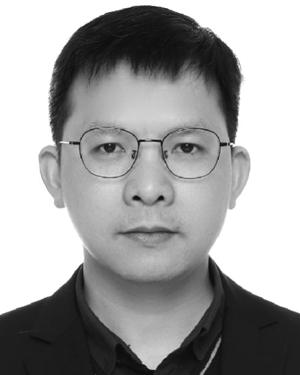
Department of Computer Science and Technology, Tongji University, Shanghai, China
Cairong Zhao received the B.Sc. degree from Jilin University in 2003, the M.Sc. degree from the Changchun Institute of Optics, Fine Mechanics and Physics, Chinese Academy of Sciences, in 2006, and the Ph.D. degree from the Nanjing University of Science and Technology in 2011. He is currently a Professor with Tongji University. He is the author of more than 30 scientific papers in pattern recognition, computer vision, and ...Show More
Cairong Zhao received the B.Sc. degree from Jilin University in 2003, the M.Sc. degree from the Changchun Institute of Optics, Fine Mechanics and Physics, Chinese Academy of Sciences, in 2006, and the Ph.D. degree from the Nanjing University of Science and Technology in 2011. He is currently a Professor with Tongji University. He is the author of more than 30 scientific papers in pattern recognition, computer vision, and ...View more
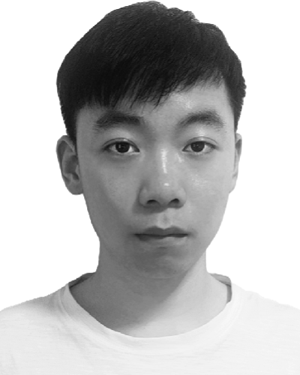
Department of Computer Science and Technology, Tongji University, Shanghai, China
Shuyang Feng is currently pursuing the master’s degree with the College of Electronics and Information Engineering, Tongji University, Shanghai, China. His research interests include computer vision, deep learning, scene text-related research, and generative adversarial networks.
Shuyang Feng is currently pursuing the master’s degree with the College of Electronics and Information Engineering, Tongji University, Shanghai, China. His research interests include computer vision, deep learning, scene text-related research, and generative adversarial networks.View more
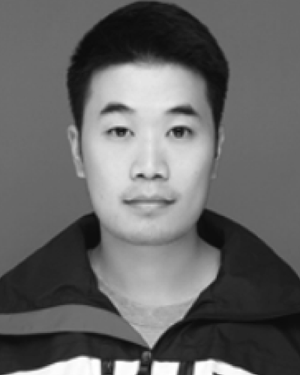
Department of Computer Science and Technology, Tongji University, Shanghai, China
Liang Zhu is currently pursuing the Graduate degree majoring in computer science with Tongji University. His research interests include deep learning and computer vision, specifically on object detection in X-ray images.
Liang Zhu is currently pursuing the Graduate degree majoring in computer science with Tongji University. His research interests include deep learning and computer vision, specifically on object detection in X-ray images.View more
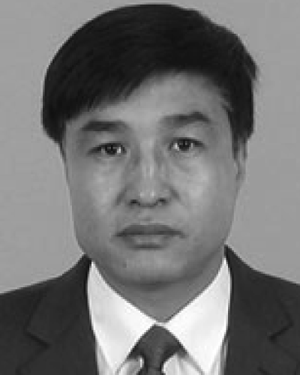
Department of Computer Science and Technology, Tongji University, Shanghai, China
Duoqian Miao was born in 1964. He is currently a Professor and a Ph.D. Tutor with the College of Electronics and Information Engineering, Tongji University. He serves as the Vice President for the International Rough Set Society (IRSS), an Executive Manager for the Chinese Association for Artificial Intelligence (CAAI), the Chair for the CAAI Granular Computing Knowledge Discovery Technical Committee, a Distinguished Memb...Show More
Duoqian Miao was born in 1964. He is currently a Professor and a Ph.D. Tutor with the College of Electronics and Information Engineering, Tongji University. He serves as the Vice President for the International Rough Set Society (IRSS), an Executive Manager for the Chinese Association for Artificial Intelligence (CAAI), the Chair for the CAAI Granular Computing Knowledge Discovery Technical Committee, a Distinguished Memb...View more

Department of Computer Science and Technology, Tongji University, Shanghai, China
Rui Shu is currently pursuing the master’s degree with the College of Electronics and Information Engineering, Tongji University, Shanghai, China. His research interests include computer vision, deep learning, scene text recognition, and scene text super-resolution.
Rui Shu is currently pursuing the master’s degree with the College of Electronics and Information Engineering, Tongji University, Shanghai, China. His research interests include computer vision, deep learning, scene text recognition, and scene text super-resolution.View more

Department of Computer Science and Technology, Tongji University, Shanghai, China
Cairong Zhao received the B.Sc. degree from Jilin University in 2003, the M.Sc. degree from the Changchun Institute of Optics, Fine Mechanics and Physics, Chinese Academy of Sciences, in 2006, and the Ph.D. degree from the Nanjing University of Science and Technology in 2011. He is currently a Professor with Tongji University. He is the author of more than 30 scientific papers in pattern recognition, computer vision, and related areas. His research interests include computer vision, pattern recognition, and visual surveillance.
Cairong Zhao received the B.Sc. degree from Jilin University in 2003, the M.Sc. degree from the Changchun Institute of Optics, Fine Mechanics and Physics, Chinese Academy of Sciences, in 2006, and the Ph.D. degree from the Nanjing University of Science and Technology in 2011. He is currently a Professor with Tongji University. He is the author of more than 30 scientific papers in pattern recognition, computer vision, and related areas. His research interests include computer vision, pattern recognition, and visual surveillance.View more

Department of Computer Science and Technology, Tongji University, Shanghai, China
Shuyang Feng is currently pursuing the master’s degree with the College of Electronics and Information Engineering, Tongji University, Shanghai, China. His research interests include computer vision, deep learning, scene text-related research, and generative adversarial networks.
Shuyang Feng is currently pursuing the master’s degree with the College of Electronics and Information Engineering, Tongji University, Shanghai, China. His research interests include computer vision, deep learning, scene text-related research, and generative adversarial networks.View more

Department of Computer Science and Technology, Tongji University, Shanghai, China
Liang Zhu is currently pursuing the Graduate degree majoring in computer science with Tongji University. His research interests include deep learning and computer vision, specifically on object detection in X-ray images.
Liang Zhu is currently pursuing the Graduate degree majoring in computer science with Tongji University. His research interests include deep learning and computer vision, specifically on object detection in X-ray images.View more

Department of Computer Science and Technology, Tongji University, Shanghai, China
Duoqian Miao was born in 1964. He is currently a Professor and a Ph.D. Tutor with the College of Electronics and Information Engineering, Tongji University. He serves as the Vice President for the International Rough Set Society (IRSS), an Executive Manager for the Chinese Association for Artificial Intelligence (CAAI), the Chair for the CAAI Granular Computing Knowledge Discovery Technical Committee, a Distinguished Member for Chinese Computer Federation (CCF), the Vice President for the Shanghai Computer Federation, and the Vice President for the Shanghai Association for Artificial Intelligence. His research interests include machine learning, data mining, big data analysis, granular computing, artificial intelligence, and text image processing. He has published more than 200 papers in IEEE Transactions on Cybernetics, IEEE Transactions on Information Forensics and Security, IEEE Transactions on Knowledge and Data Mining, IEEE Transactions on Fuzzy Systems, Pattern Recognition, Information Sciences, Knowledge-Based Systems, Chinese Journal of Computers, Journal of Software (in Chinese), Journal of Computer Research and Development (in Chinese), Automatica Sinica (in Chinese), and ACTA Electronica Sinica (in Chinese). He won the second prize at Wuwenjun AI Science and Technology in 2018. He serves as an Associate Editor for the International Journal of Approximate Reasoning and an Editor for the Journal of Computer Research and Development (in Chinese).
Duoqian Miao was born in 1964. He is currently a Professor and a Ph.D. Tutor with the College of Electronics and Information Engineering, Tongji University. He serves as the Vice President for the International Rough Set Society (IRSS), an Executive Manager for the Chinese Association for Artificial Intelligence (CAAI), the Chair for the CAAI Granular Computing Knowledge Discovery Technical Committee, a Distinguished Member for Chinese Computer Federation (CCF), the Vice President for the Shanghai Computer Federation, and the Vice President for the Shanghai Association for Artificial Intelligence. His research interests include machine learning, data mining, big data analysis, granular computing, artificial intelligence, and text image processing. He has published more than 200 papers in IEEE Transactions on Cybernetics, IEEE Transactions on Information Forensics and Security, IEEE Transactions on Knowledge and Data Mining, IEEE Transactions on Fuzzy Systems, Pattern Recognition, Information Sciences, Knowledge-Based Systems, Chinese Journal of Computers, Journal of Software (in Chinese), Journal of Computer Research and Development (in Chinese), Automatica Sinica (in Chinese), and ACTA Electronica Sinica (in Chinese). He won the second prize at Wuwenjun AI Science and Technology in 2018. He serves as an Associate Editor for the International Journal of Approximate Reasoning and an Editor for the Journal of Computer Research and Development (in Chinese).View more


